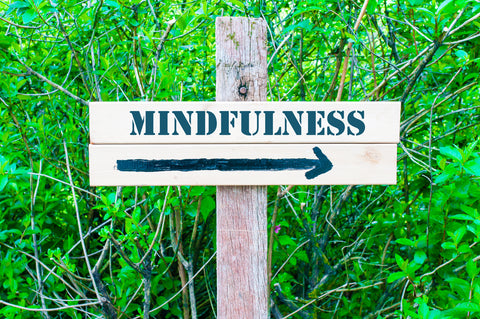
Stress happens when mental or physical demands are placed on a person causing tension. It is the way your body reacts to circumstances that your body believes as producing pressure or threats.
Stress fills you with cortisol and adrenaline, putting your body and mind into a reactive state. They can lead to damaging effects on your body. Luckily, there are ways to combat this tension through mindfulness exercises.
Mindfulness is when you are completely aware of both your mental and physical needs. You become aware of those needs and can focus on improvements.
Using mindfulness to combat the effects of stress has been a popular technique for hundreds of years. Mindfulness redirects your attention away from the stressors and onto fixing problems within your body.
Mindfulness can reduce stress in many ways. Keep reading to discover the positive effect mindfulness exercises have on the body.
Reduced Activity in the Amygdala
The part of the brain that creates and activates stress is the amygdala. The amygdala is the area where “fight or flight” decisions are made. Meaning, when we feel threatened in any way, our brain decides if we should stay and confront the situation or get away from the perceived threat.
Instead of automatically triggering a negative response to a situation your brain considers stressful, mindfulness exercises teach you how to maintain positivity.

Improved Focus
Focus involves concentration. It requires attention to details. This is hard to do if you are filled with anxiety or overwhelming angst related to stress.
Stress causes a lack of concentration. It becomes hard to focus on work. Acute stress can hinder short term memory. You start to feel as if your memory is just not as good as it once was.
You may even go to one room but forget why you went there. Or, misplacing ordinary items become more frequent. This is frustrating because things you wouldn’t normally forget, you are now forgetting.
Mindfulness exercises help teach you how to focus. It improves memory and concentration. With mindfulness, you can learn to use all your senses to help you maintain focus.
Improved Attitude
Your attitude reflects how you are feeling and thinking. Attitude influences how you behave based on your thoughts and feelings. Stress can directly affect your attitude.
Stress lowers the value we place on ourselves. Over time, you start to see everything through a negative perspective. We even start to use negative self-talk, lowering our esteem. Negative self-talk leads to negative expectations.
Meaning, we begin to expect dreadful things to happen to us. This is the start of a cycle and it becomes harder to change.
Mindfulness exercises can reverse negative thinking and negative attitudes.
Improves Sleep
Sleep offers healing of the body, especially during the deepest sleep stages. It restores our mental and physical abilities.
When you do not get good sleep, you can expect to experience exhaustion, lack of focus, and increased mental health problems.
Mindfulness exercises help you to receive better sleep. Practicing mindfulness helps you erase the negative thoughts and feelings from your mind. It clears your head so that you can focus on falling asleep.

Improves Mental Health
Mindfulness has been associated with improved mental health, combating the negative effects stress has on mental health.
Stress can lead to depression and anxiety, as well as other mental health disorders. Mindfulness exercises help you recognize the needs of your mind and body. It gives you the time necessary to listen to what your body needs to heal.
Mindfulness helps you manage your thoughts and feelings. You can remain realistic in your perceptions. Reports state mindfulness exercises can help you avoid relapse in both mental health and addiction type disorders.
Enhance Mindfulness Exercises with Kava
People have been using kava for centuries to promote relaxation among users.
Consuming kava before your mindfulness exercises is one of the best ways to conquer your inability to relax, focus and sleep.
You can purchase strands of kava based on your current needs. Kava also helps to improve attitude. Many report that kava makes you feel good will towards others and makes you want to socialize.
Kava also has the ability to improve sleep quality and helps you remain mentally alert and awake. In ancient times, kava was used to open the mind, so village leaders could hear from their Gods.
All of kava’s benefits help with improvement of relaxation. When combined with mindfulness exercises and techniques, you are creating a routine for yourself that can help you overcome the negative effects of stress.
